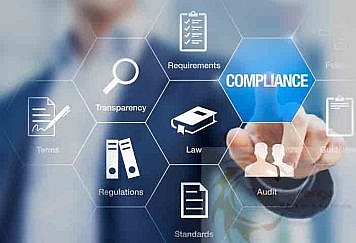In pharmaceutical manufacturing, adherence to GxP (Good Practices) compliance is essential. It’s not just about following rules; it’s about ensuring that every medicine produced is safe and effective for the patient. The pillars of this compliance – data integrity, temperature monitoring, and computer system validation – are critical in guaranteeing product quality. Each area presents its own set of challenges and requires specific solutions.
Ensuring Data Integrity and Security
Data integrity is the foundation of trust in pharmaceutical manufacturing. It ensures that the data collected during the manufacturing process is accurate and reliable. Regulatory bodies like the FDA and EMA emphasize its importance through stringent guidelines, underlining that maintaining data integrity is non-negotiable.
Issues such as data tampering and insufficient audit trails are common challenges that companies face. The vast amounts of data and the complexity of pharmaceutical processes add layers of difficulty in maintaining this integrity. Safeguarding data integrity involves robust measures like data encryption, access control, and comprehensive validation processes. These methods help protect data from unauthorized access and ensure its accuracy and consistency throughout its lifecycle.
Temperature and Environmental Monitoring
Temperature control is a critical aspect of pharmaceutical manufacturing. Even minor deviations in temperature can compromise the quality and efficacy of products. Consistent temperature monitoring is essential to maintain product integrity. The challenge lies in maintaining precise temperature control throughout various stages – manufacturing, storage, and transportation. Besides temperature, other environmental factors like air quality and cleanliness are pivotal in ensuring product quality. Monitoring these environmental conditions helps prevent contamination and maintain compliance with regulatory standards.
Validating Computer Systems
Technology is integral to manufacturing making validation crucial to implementing and maintaining computer systems. This process involves ensuring that computerized systems are accurately processing data and maintaining compliance with regulatory requirements. Effective validation of computer systems involves thorough documentation and extensive testing. Implementing best practices such as regular system audits and continuous monitoring is crucial in upholding compliance standards.
Leveraging Technology for Compliance
Technological advancements offer new avenues for maintaining GxP compliance. Automated systems and advanced software help streamline compliance processes, making them more efficient and reliable. The implementation of new technology solutions in GxP compliance must be carefully managed. It’s crucial to ensure that these technological solutions align with regulatory standards and fit seamlessly into existing manufacturing processes. With strategic planning and execution, any hurdles can be overcome, leading to improved compliance and manufacturing efficiency.
The Role of Continuous Improvement
In the world of pharmaceutical manufacturing, continuous improvement is a crucial practice that ensures high-quality products and compliance with industry rules. It’s all about regularly finding ways to do things better. Companies examine their manufacturing methods, making them more efficient, reducing waste, and improving product quality.
Employee training is essential to keep the workforce up-to-date with the latest industry trends, and staying compliant. Additionally, staying informed about regulatory changes is vital since regulations often evolve to reflect new scientific advancements and safety standards. By embracing continuous improvement, businesses can not only meet industry standards but also thrive in a competitive market, benefiting both their bottom line and their customers.
The Human Element in Regulatory Compliance
In the highly regulated pharmaceutical manufacturing environment, the role of personnel cannot be overstated. Employees at all levels, from operators on the manufacturing floor to quality assurance specialists, play a crucial role in ensuring pharmaceutical compliance. Proper training and education are vital to equip personnel with the knowledge and skills required for compliance.
Effective communication and collaboration among teams are essential for seamless compliance. Departments such as production, quality control, and regulatory affairs must work in harmony to meet compliance goals. The human element also plays a critical role in problem-solving. When compliance issues arise, it’s often the creativity and expertise of employees that lead to innovative solutions and preventive measures. Finally, fostering a culture of compliance is essential.
Wrapping Things Up
Navigating the complexities of regulatory compliance in pharmaceutical manufacturing is an ongoing challenge. By focusing on data integrity, temperature control, computer system validation, and leveraging technology, companies can meet these challenges head-on. Embracing continuous improvement and adapting to evolving technologies and regulations are crucial for maintaining the high standards of safety and efficacy required in this industry.
Follow TechStrange for more Technology, Business and Digital Marketing News.





